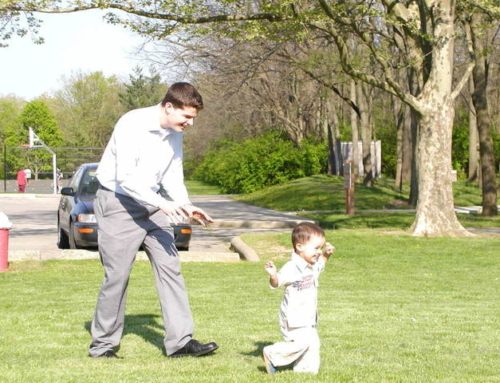As humans, we have a long history of creating rites of passage. For the most part, these are signs, behaviors, clothing, accomplishments, privileges, and ceremonies to enhance and celebrate rites. Some are cloaked with superstition, others, history, and still others, faith. Those involved may be family, strangers, authority figures, shop-keepers, casual acquaintances, or those who share an interest in the same activity or hold the same spiritual tenets.
Beginning with conception and birth, there are many predictable sequences of rites. The rituals appear to highlight independence, then intimacy, ending with death. Within the worlds of the 20th and 21st centuries, additional rites have been added to mark development of specific skills (arts, sports), age (Quinceanera, Bar/Bat Mitzvah, driving/drinking/voting age), family or relationship status (marriage, birth, divorce), and, most frequently, mastery of knowledge (school graduation).
Rites of passage tend to mark unique events and conditions. However, those associated with school graduation occur repeatedly – which may wash out the importance of the ritual and the achievement. there are ceremonies, and even paperwork, for completion of preschool, kindergarten, elementary school, middle school, high school, college curricula, graduate school, and professional degrees. Some professions mark special longevity and mastery status as well as marks of regularly adding to and honing skills through “continued education.” The school rites go on and on…
Most of the academic transitions include an emphasis upon the following points, abilities, or qualities:
- verbal abilities
- motor abilities
- social skills
- expanded knowledge
- age
- personal and material organization
- status
- responsibility
- independence
Although the areas of focus may be the same for each “grade” level, the paths to attainment are different. Time, practice, training, fluency, autonomy, and evaluation are emphasized. All of these must be applied to the tasks in order to gain mastery. Only then is the person fully equipped to engage in the rite and move on to the next phase. This is essential to understand as each rite has a unique emphasis and mastery goals. Preparation, practice, and precision cannot be ignored as the rites (and transitions) near.
Moving From Preschool to Kindergarten
- ability to follow directions is present
- ability to remember oral commands is growing
- fine motor, language, gross motor skills are developing and nearly automatic
- sense of self vs. others (awareness of being a separate person) is seen in social settings
- tolerance for sharing and waiting one’s turn can be called upon
Moving From Kindergarten to Elementary School
- ability to follow multi-step commands is present
- routines are followed
- novelty is accepted
- more natural and ready physical skills are possessed
- ability to work together occurs → cooperation is possible, if not likely
- sense of pride in accomplishments drives the person
- curiosity can be harnessed
Moving From Elementary to Middle School
- multi-tasking is possible
- planning ahead occurs (with prompting and guidance)
- work and its quality are self-monitored and revised
- basic skill bases are solidified
- learning and processing skills are secure
- memory is fluent and quick
- time management begins to emerge
- multiple demands are remembered
- differences are tolerated
Moving From Middle to High School
- sense of self continues to develop
- self-regulation is automatic
- application of what is known to new/novel
- critical analysis is in place
- organization is replaced by goal-setting as an approach strategy
- drives for organization, success, and accomplishment arise
- time awareness and planning skills are automatic
Moving From High School to College & Beyond
- dedication to self and success is a primary motivation
- balance of work and leisure is maintained
- passions are established and valued
- financial and personal skills are intact
- willingness to learn, think, and struggle is present
- time management and organization skills are naturally applied
- effective independence occurs
Deliberate practice, skill acquisition, evaluation, and automaticity must be attained in order to smoothly navigate the transitions and earn the privilege of each rite. In order to make such leaps and consistent progress, a focus upon skill development and mastery is more important than the end goal of attaining the ritual celebrations, privileges, gifts, and status. By selecting the right areas and skills to develop (often beyond what a formal curricula may introduce), parents and students can make the right rite right – not just the celebratory rituals.
Strategies and Recommendations to Get the Rite Right
» Reference series of child development books to develop appropriate expectations for each age/stage.
» Ensure that extracurricular activities and passions are sustained over time. Focus upon skill development and gradual mastery. Persistence and tenacity under frustration is essential. Learning is not immediate.
» Provide social skill, organization, and time management skills when needed. Allow the person to manage themselves rather than rely upon external structure, demands, and working “under fire.”
» Rely upon guided, safe practice of small steps – not attempting the final goal all at once.
» Provide “safety nets” when independence is permitted – this encourages efforts and minimizes long-term risk.
» Use logical consequences (both positive and negative) to secure mastery of small steps.
» Skill security and automaticity must be present and consistently applied before moving to the next skill phase.
» Transitions and rites should be deferred when the person does not have the necessary steps to move on. (For example, just because someone turns 16, it doesn’t mean they have the skills needed to be a safe, independent driver.)
“Your future depends on many things, but mostly on you.” – Frank Tyger
“Do what you can, with what you have, where you are.” – Theodore Roosevelt
“A little knowledge that acts is worth infinitely more than much knowledge that is idle.” – Kahil Gibran
“Endurance is not just the ability to bear a hard thing, but to turn it into glory.” – William Barclay





